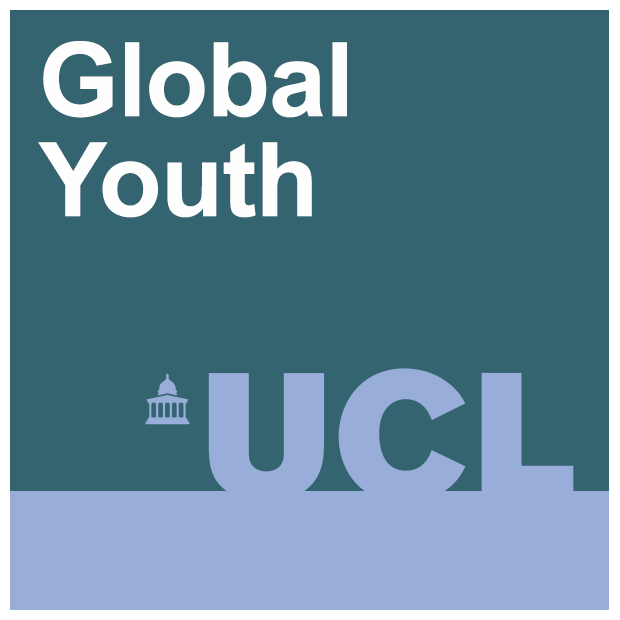Youth mobility webinar series week 4: UK
By UCL Global Youth, on 19 April 2021
To view a recording of this webinar, visit our Youtube channel.
On Tuesday 25th May, 2021, 12 noon UK time. Register for this event on Eventbrite.
The fourth webinar of this series will focus on student mobility within the UK and youth attitudes towards international mobility (their own and that of Others).
In the first presentation, Dr Michael Donnelly (University of Bath) and Dr Sol Gamsu (University of Durham) discuss how university students’ geographic movements within the UK (re)produce social, economic, racial and ethnic divisions.
Next, Dr Avril Keating examines how young White British youth talk about international mobility and argues that these attitudes are fraught with contradictions that stem from the mixed messages young people receive about mobility, migration, multiculturalism, citizenship and individualism.
Presentation 1: Spatial structures of student mobility: Social, economic and ethnic ‘geometries of power’
Dr Michael Donnelly (University of Bath) and Dr Sol Gamsu (University of Durham)
We present here findings from an ESRC-funded study which addressed the geographic movements of university students internally within the UK context, examining how these are constitutive of broader societal division, stratification and processes of social reproduction. Using Giddens and Massey and drawing on a unique multi‐sited qualitative dataset, we examine how these flows can be understood as embedded within narratives of ‘the self’ that are situated within a particular spatial structuring of social, economic, and ethnic difference. In our presentation, we also discuss the methodological questions raised by our study on researching difference across space, offering the ‘mapping tool’ we developed as part of the research as one means of eliciting deep-seated spatial imaginaries held by groups and individuals.
The use of this mapping tool to collect data across multiple case study localities provided a unique opportunity to observe the simultaneity of social relations across space, mutually shaping, and reshaping each other over time. We illustrate how embedded within imagined mobility narratives are deeply unequal structures of economic power, (re)producing oppressed and dominant positions across social and geographic space. Geometries of race and ethnicity are also shown to structure the ways in which different ethnic groups look upon the geography of their university choices. The patterning of these imagined spatial flows around the United Kingdom at the point of university entry can be interpreted as one further manifestation of deep‐seated geometries of power that pervade social life.
About the authors:
Michael Donnelly is an Associate Professor at the University of Bath and is mainly interested in the sociology of education, especially links between education and social stratification, inequality and wider societal divisions. His current research addresses education and Indigeneity, examining the ‘collectivising’ and ‘individualising’ discourses present within the Mexican higher education system (funded by ESRC). Michael’s previous UK-based research has addressed the role of geography in higher education and labour market transitions and the ‘school effect’ on university destinations (also funded by ESRC).
Sol Gamsu is an Assistant Professor at the University of Durham. He is a sociologist and a geographer of education with a strong commitment to the politics of education and envisaging alternative futures for education and society more broadly. His interests lie at the intersection of sociology, geography and history and the central theme running through his work is how structures and experiences of power and inequality in education are reproduced over time and through different local and regional geographies. Prior to this, he was a postdoc at the University of Bath working with Michael Donnelly on the ESRC-funded project, the Geographies of Higher Education: spatial and social mobilities.
Presentation 2: Mobility for me but not for Others: the contradictory cosmopolitan practices of contemporary White British youth
Dr Avril Keating (UCL)
This presentation seeks to problematise the perception that young people are committed cosmopolitans by highlighting some of the contradictory and contingent practices that young White British youth engage in. To do so, I explore a contradiction that emerged in my recent projects when young people talked about mobility and migration, namely how some White British youth want (and assume) freedom of movement for themselves but are opposed to freedom of movement when it involves immigrants coming to Britain. Here I argue that this can be viewed as an effort to enjoy the benefits of a cosmopolitan lifestyle (particularly through geographical mobility) while nonetheless wishing to limit opportunities for cultural Others to do likewise. This manifestation, I suggest, should be seen as a one-way form of cosmopolitanism that is not just contradictory, but also a reflection of the mixed messages young people in Britain receive about mobility, migration, multiculturalism, citizenship and individualism. This presentation draws from an article that is forthcoming in Sociology.
About the author:
Avril Keating is the Director of the Centre for Global Youth and an Associate Professor of Comparative Social Science at UCL Institute of Education. Avril is a sociologist of youth and citizenship and her current research focuses on (a) youth attitudes towards cultural Others and what this tells us about who gets to be a citizen in contemporary Britain (b) the relationship between place, resources, and mobility aspirations for young people growing up in coastal towns. She also has a long-standing interest in citizenship education, youth civic engagement and the Europeanisation of citizenship education policy.
This series is hosted by the UCL Centre for Global Youth and co-organised by Dr. Avril Keating (Director of the Centre), Dr Sazana Jayadeva (University of Cambridge) and Rachel Benchekroun (UCL-IOE). The series is funded by IOE International.
 Close
Close



